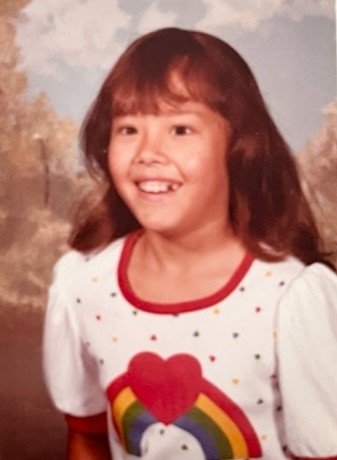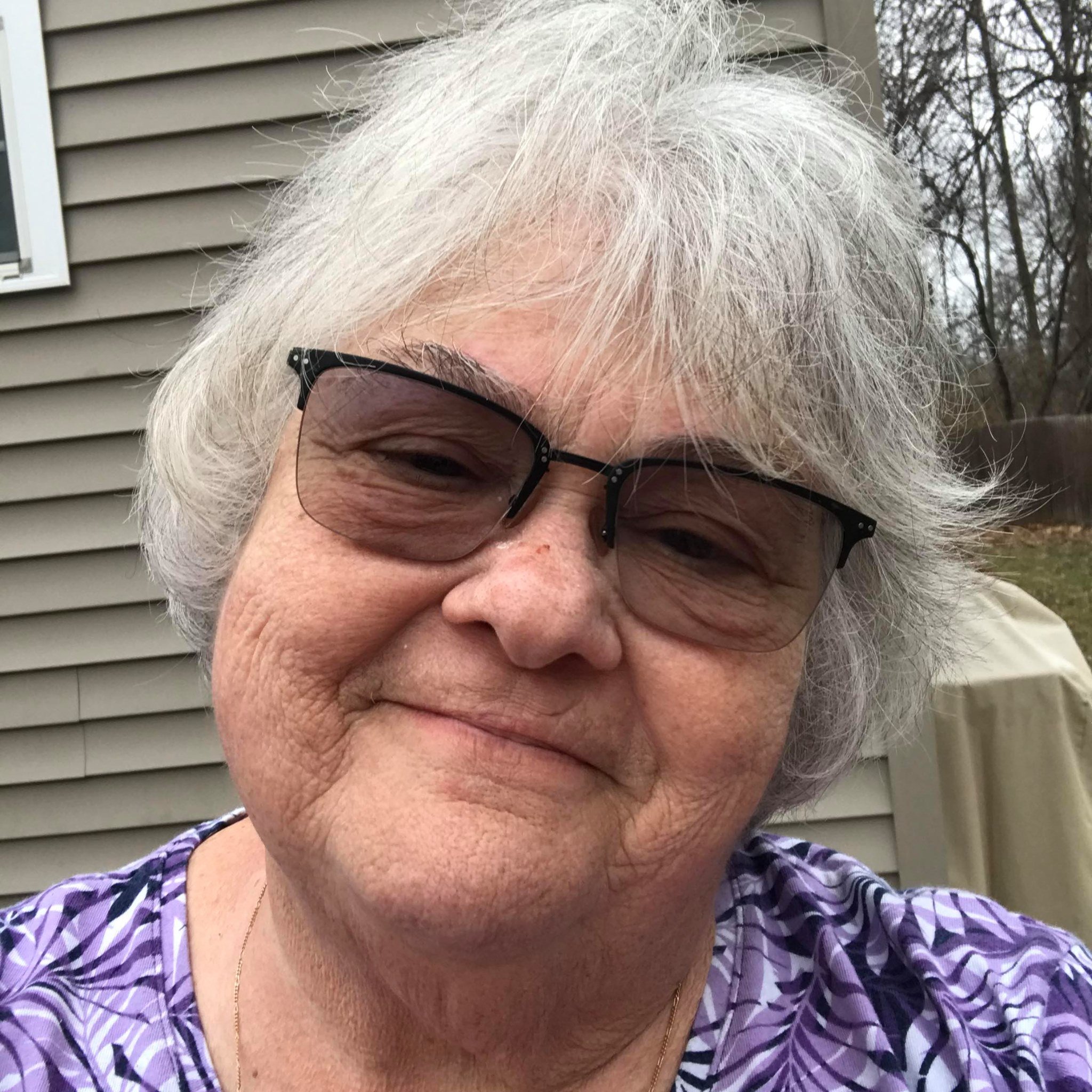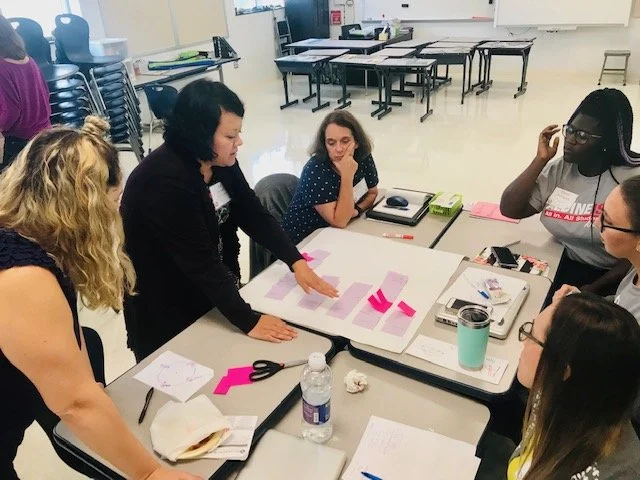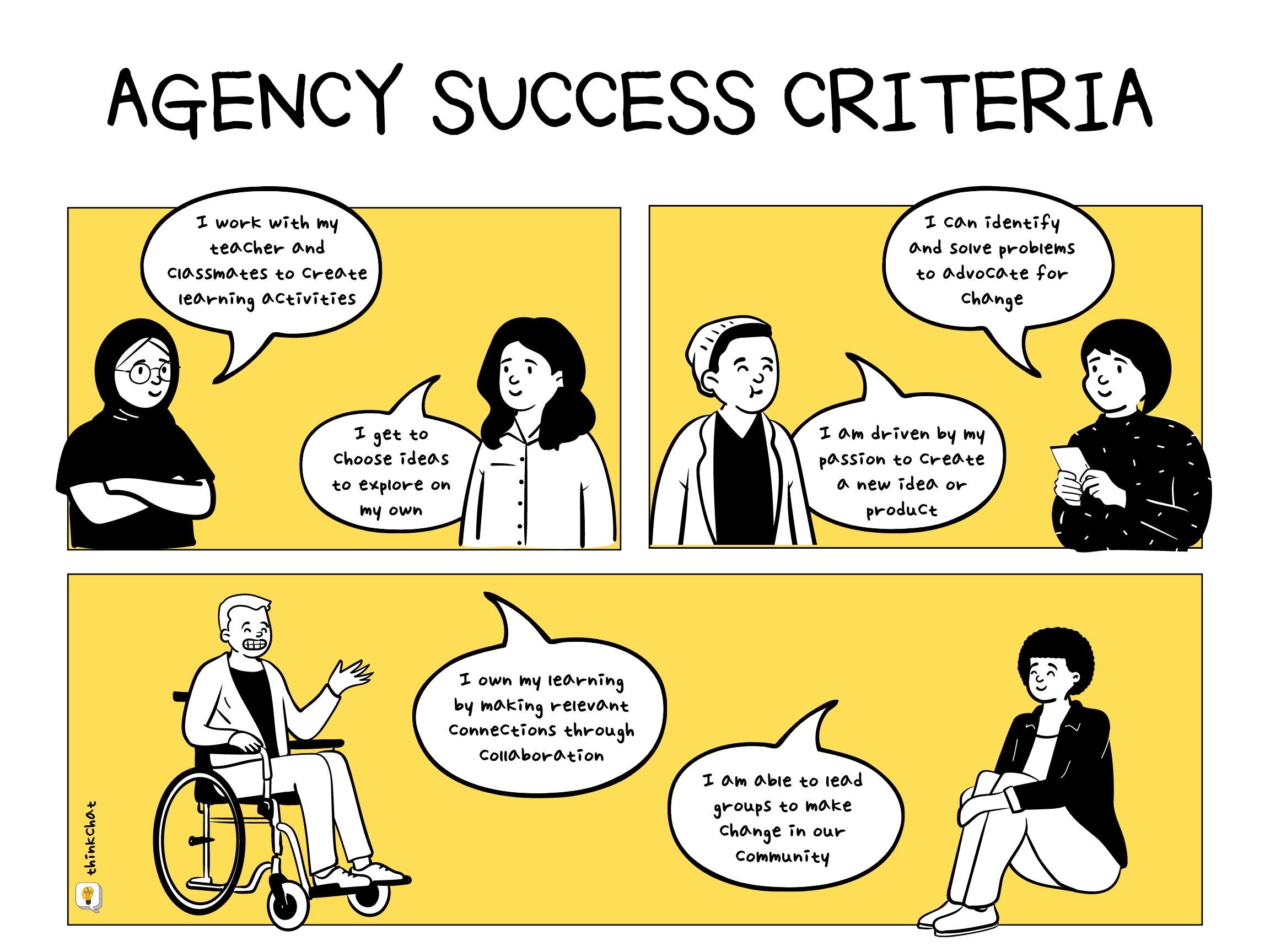Lu Gerlach (she/her)
Consultant at thinkchat • Houston, Texas, USA
How did you get into teaching?
I have been an educator my entire life, spending most of my youth helping out in my step-mother’s third-grade classroom. By the time I was twelve, I knew how to create a beautiful bulletin board display, curate an inquiry exploration table, and level a classroom library. As I went through university and life, I dabbled with a lot of options, but I kept coming back to teaching. Nearly 20 years later, I’m still tinkering with learning space design and how it supports playful inquiry.
Lu in fourth grade
Who was the teacher who made the most positive impact on your life?
I grew up in South Korea in a small village surrounded by my mother’s network of family and friends. My father was in the U.S. Air Force and we transferred to California in time for my enrollment into kindergarten. In school, I encountered a new language called English and quickly learned that my Korean identity was not valued. I began to slip into selective mutism because I realized that teachers rewarded children who were quiet and compliant. I also did not have the words to express myself, so it was easy to fade away into the background.
Lu’s trailblazing 6th grade science teacher, Ms. Hively!
In sixth grade, I had acquired enough language to interact and convey meaning, but I had little desire to make my voice known until I met Ms. Cathy Hively. She was the first female teacher I had met who really loved science. In one year, I turned from creating assignments out of compliance to researching on my own for pleasure. Ms. Hively made learning authentic with pictures, artifacts, books, and her personal experiences. Learning became personal and I continuously hungered for more.
My year with her culminated with a week-long science camp. I remember sleeping in old-fashioned log cabins with wooden bunk beds and scratchy cotton sheets. The heat was oppressive, but we found respite by canoeing and swimming on the lake, taking long walks in the forest, and making crafts with natural materials. On our final night, I remember walking into my first boy/girl dance and feeling that my life had forever changed, because now I was a young woman. All of these experiences were shaped by an excitable teacher whom I recently connected with on Facebook. We are going to meet online in a few weeks for a long overdue chat. It’s like coming home again to experiences that have lasted a lifetime.
What is a professional inquiry you are currently pursuing?
Sharing her inquiry passion with teachers
I’ve been observing a lot of comments, trends, and thoughts about education on social media. A big question that I’ve been pondering is, “How can I better support fellow educators, so they are sparked with curiosity and wonder about our profession?” Everyone has their unique voice, so I have been participating in a lot of webinars and group chats to center my focus. After much inner reflection, I am opening myself to new possibilities through TikTok videos, Twitter Spaces, Webinars, and Prezi videos. I’m equally fascinated and frightened by all of the ways that we can communicate, but I am going to challenge myself to overcome my fears to make content that will help others. It’s stretching me to go beyond my comfort zone, just like when I began podcasting in May 2020.
What is a personal inquiry you are currently pursuing?
My personal inquiry is all about my health. I travel a lot for my work, which has greatly impacted my lifestyle choices and sense of balance. A big question that I have is, “How can I honor my spirit and body with a hectic work life?” I know that many people have successfully found the balance for themselves, but just like inquiry, it’s not a one size fits all process.
One of Lu’s reflection drawings from December 2022
Something that has greatly changed my perspective on a daily basis is a gift I received from a close friend. I was given a set of Mystic Monday cards, a set of Crush Your Goals cards, and a drawing pad to capture my conceptual thinking. To reset my creativity, my friend Anthony encouraged me to shuffle each deck separately and choose a card from each deck that speaks to me. I read the description of both cards and find the similarities between them and draw these ideas on the pad. To my surprise, it has been quite therapeutic delving into my inner insecurities, frustrations, and celebrations. I take the card decks and drawing pad with me on my travel journeys and it has helped me to reset after a hectic day of training.
What ideas do you have to improve the teaching profession?
As I’ve met with school leaders and teachers this past year, many expressed their need to reset their school culture. Something that emerged was the need to establish relationships through the lens of empathy. When most of us think of empathy, we usually connect it to “putting ourselves into other people’s shoes.” What does this mean? Empathy is putting our hearts into the happy and uncomfortable moments in other’s lives. This means celebrating others’ successes, even when it hurts. What does this look like? I picture two little league teams battling for the championship. At the end of the game, the losing team high fives each of the players on the winning team. Even though the losing players feel bad, they put their feelings aside to show support to the winners. This is the other side of empathy that helps our learners to admit their mistakes, manage setbacks, and move forward in their learning and relationships with others. Empathy is the foundation of building strong connections within inquiry classrooms.
With a strong sense of self, our learners are able to take more ownership of their learning journey. One thing that has transformed my own practice is using a success criteria. There are numerous definitions, but this one has helped me to scaffold the process. I present six targeted skills that my learners can choose from to work on within a course of a unit. They all lead towards the goal of building learner independence in a certain area. I ask my learners to identify a skill that is a “strength'' already. How do we define strength? If they can tell me 3-5 ways that they can demonstrate the skill within their practice, it is determined to be a strength. Next, we examine the remaining success criteria options to look for a skill that is an “opportunity for development.” This is a skill that they have some working understanding of already, but may need more practice for it to become a strength. The learner chooses the skill as their goal and provides reasoning for the selection. Below is an example of an early years and primary success criteria that can be found in Using Agency Daily.
Once we have set our goals using a success criteria, we are able to use the information to build a strong culture of growth. This requires a mindset of development over achievement. One way to accomplish this is to create a classroom success criteria. Place the six success criteria together in a prominent place in the room where learners can regularly refer to them. Have learners reflect on their goal setting process and determine which criteria is their “strength” at that moment in time. Post their picture above a criteria, so learners who are working on this criteria as a goal have experts within the classroom that can support their learning journey. This strategy helps learners to realize that we all have different strengths and opportunities for development. The teacher is encouraged to participate in this process to show their learners that we are life-long learners that seek ways to continuously grow.
You gotta see this!
One book that has greatly shifted the way I think about diversity, equity, and inclusion is Culturally Responsive Teaching & The Brain by Zaretta Hammond. This book has put into words my experiences of engaging with children of color in at-risk communities. Something that has stayed with me is this inquiry question, “If all brains are wired for expansive learning, high intellectual performances, and self-determination, then students of color should be experiencing this state of being…Why are so many students of color underachieving?” This book explores this question through neuroscience, learning conditions, and teacher impact. In particular, Zaretta provides a Ready for Rigor Framework that sets all learners up for success through awareness, learning partnerships, information processing, and building a community of learners and the learning environment. I wish I had access to this book at the beginning of my career, because it would have provided a deeper understanding of how to better support all of the learners in my classroom.
Thank you, Lu!
Editor’s Note: If you haven’t yet listened to one of Lu’s podcasts, I highly recommend you do! Lu’s voice is authentic, personal, and honest. Each episode is bite-sized (perfect for your daily commute). Each of Lu’s three suggestions to improve teaching above are hyperlinked with a related episode. I must confess (haha), Episode 100 is one of my favorites precisely because she tells it like it is and goes right into the ‘confessional’ of teacher self-care and digs deep. Listen to it here.
Interested in a personalized guide to direct your own inquiry project? Check out our teacher inquiry course. We’re offering 50% off for the first 100 Spotlight readers who sign up. Enter “spotlight” in the checkout!
OK, Friends. Like Lu, I’m also listening carefully to my body and spirit. Both of my vibrant, active parents are struggling with the impacts of dementia. So, the Inquiry Teacher Spotlight will be on hiatus as I focus on their needs and learn more about how I can help make life easier and more joyful.
The Spotlights page will remain here, however, and the beautiful faces you see on the page beckon you to learn more. In fact, schools have used the Spotlights to explain the windows and mirrors activity by asking: “Who is a window and who is a mirror for you as you read through these profiles?”
Perhaps you could even use these same seven Inquiry Teacher Spotlight questions for your teachers to respond to - and publish them on your website!
Be well and stay in touch!








